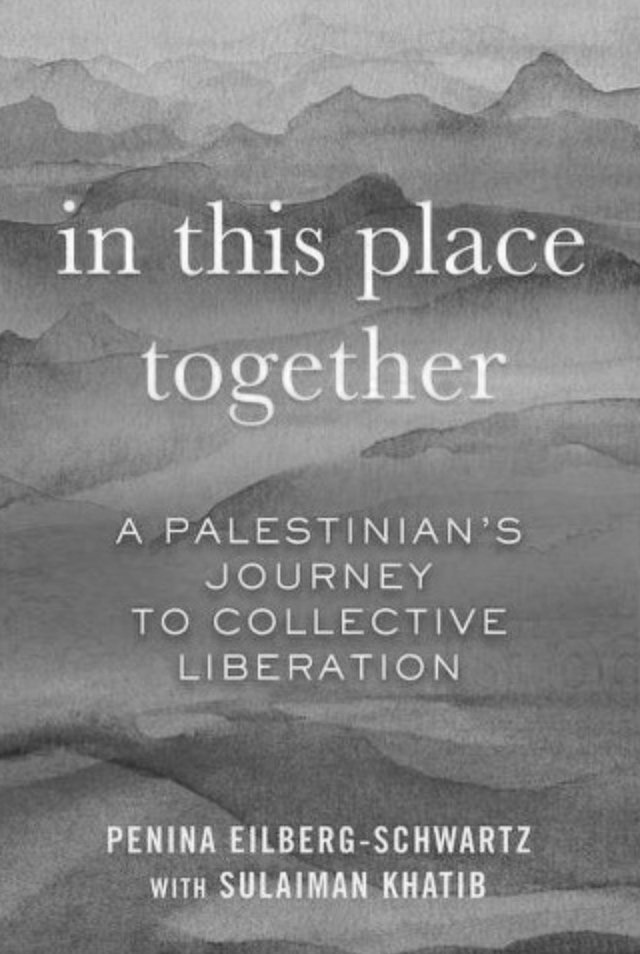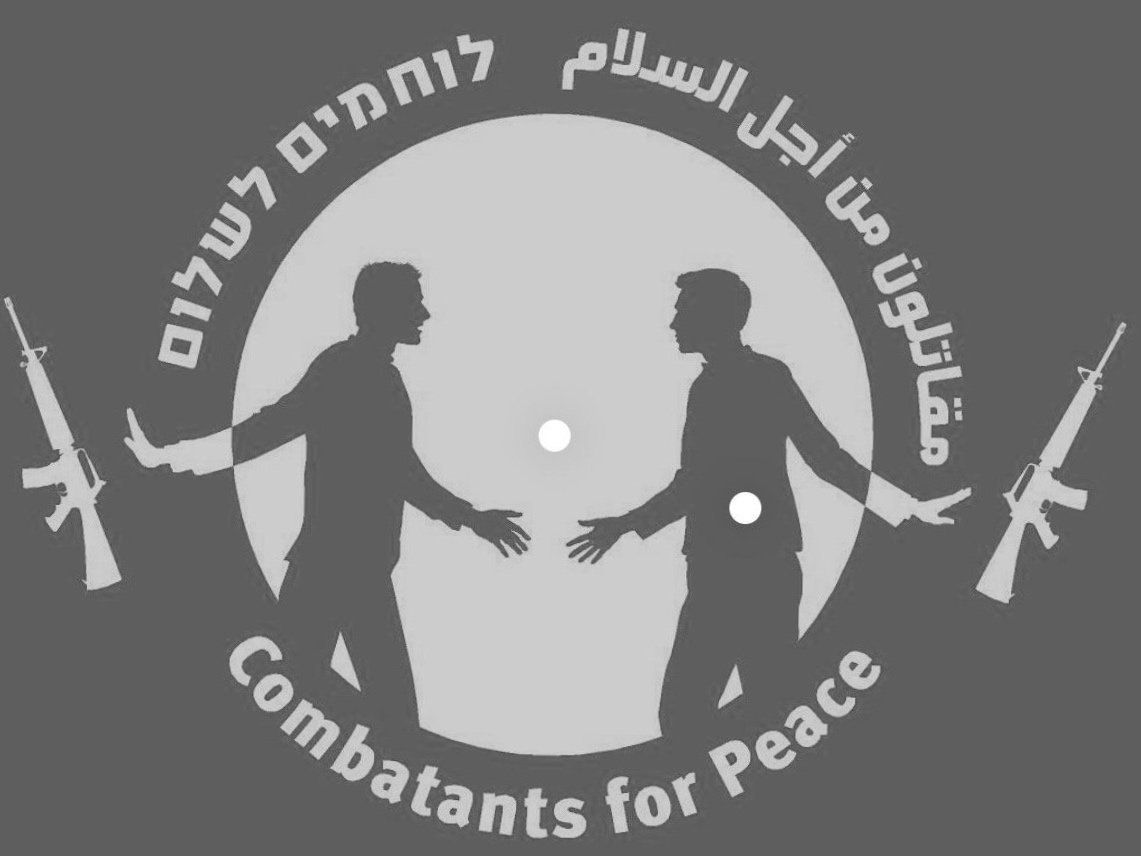S3 E1: SHARING SACRED LAND | SULAIMAN KHATIB
Sulaiman Khatib grew up in a small Palestinian village, on the outskirts of Jerusalem. At the age of 14, he and his friend received long jail sentences for stabbing and injuring two Israeli soldiers. In the jail library he studied the history of the Jewish people, and began to understand that there were equally compelling narratives to both sides. A reconstructed perspective of non-violence, further impacted by hunger strikes in jail, seeded his future dedication to peace and reconciliation work. In 2005 he cofounded the Combatants for Peace, an organization created by Palestinian and Israeli former fighters and victims of violence. Combatants for Peace is modeled on humanistic values of empathy, forgiveness and mutual respect for a future of peace on the sacred homeland that both Palestinians and Israelis love, fighting not each other - but the common enemy of hatred and fear. Nominated twice for the Nobel Peace Prize, his transformative journey and visionary optimism is rooted in a deep love of the land, ancient wisdom, and spirituality.
SULAIMAN KHATIB BIO
Sulaiman Khatib is a Co-Founder of Combatants for Peace, and was nominated for the 2017 & 2018 Nobel Peace Prize, on behalf of Combatants for Peace. He is a Board Member of the Middle East Initiatives, and a local organizer who has been recognized internationally for his contributions to promoting, peace, social justice and equality for all. He is a renowned speaker and lecturer worldwide.
In 2006, Khatib was the co-founder and General Director of Al-Qud’s Association for Democracy and Dialogue. The program works with youth in order to create effective and sustainable projects and programs focusing on the promotion of peace, democracy and civic participation in the Palestinian Territories. In 2008, he co-founded the People’s Peace Fund. In 2010, he became the director of Alquds, an organization that organized joint Israeli-Palestinian sports teams for youth.
At the age of 14 Khatib was sentenced to fifteen years in prison and served a term of ten and a half years where he spent his time learning about history, Hebrew, English and about other world conflicts and peace activists such as Ghandi and Mandela. He acquired his entire education and worldview in jail. This is when he started to have new thoughts about the conflict and the means for resolving it. As a result he is today a committed advocate for peace in the Middle East and an has been an active member of various programs aiming to promote a peaceful solution to the Palestinian-Israeli conflict for the last twenty years. During the second Intifada, he was one of the main voices calling for non-violent resistance.
In 2004, he went on a mission to Antarctica with a joint group of Israelis and Palestinians. Their team consisted of eight members: four Israeli, four Palestinian – many of whom were former fighters from both sides. They sailed over 100 km in the world’s most dangerous waters and climbed a previously unclimbed peak. The objective: “to find common ground.”
Sulaiman and Chen Alon, another co-founder of Combatants for Peace, were nominated twice for the Nobel peace prize in 2017 and 2018. Both times the nomination was on behalf of CfP. Sulaiman starred alongside fellow CfP activists in ‘Disturbing the Peace‘, an award winning film detailing the origins of the Combatants for Peace movement, which was released in 2016. Sulaiman is the author of In This Place Together: A Palestinian’s Journey to Collective Liberation, alongside co-author Penina Eilberg-Schwartz. The work chronicles the powerful experiences that led him to dedicate his life to joint nonviolence, through encountering the deep injustice of torture, witnessing the power of hunger strikes, and studying Jewish history.
LINKS
Sulaiman Khatib
Combatants for Peace
American Friends of Combatants for Peace
Middle East Initiatives
Rent the Film ‘Disturbing the Peace’
‘Disturbing the Peace’ Trailer
Buy the Book ‘In This Place Together: A Palestinian’s Journey to Collective Liberation
Instagram:
Combatants for Peace
Souli Khatib
Facebook:
Souli Khatib
Combatants for Peace
American Friends for Combatants for Peace
TRANSCRIPT EXCERPT
“I felt like I grew up in jail. The choices I made is not out of weakness. Some people think we choose nonviolence out of weakness. That's not true. Also I studied Hebrew. The truth is, the theory was to learn your enemy's language. That's the truth. A long, long journey. It's not one event changed me. I have a long journey to reach a level evolving of forgiveness and love. Non-violence are not really weaknesses; rather the opposite….. for me it became deeper, as ideology, transforming this power here to non-violence, and to find shared space for both peoples that feel belonging to the same place. It's maybe challenging for many people. I understand from all sides. Very challenging, including to my family, to say both people carry this narrative, belonging to this land. Same stones, the same land, the same water, honestly. I think recognizing this fact is a pre-condition for changing the discourse here. This is going back to the roots of everything. And, it take me many years to be there. I am not saying it's easy, and it's sometimes maybe easier to stay in our comfortable zone. If we talk about Jewish history, for years dreaming to go back to Jerusalem. And the same for Palestinian. My family in Jordan, they are Palestinian. That's their truth. And their breath, their soul is connected to their land where we are. Our ancestors used to say, We don't own the land. We belong to the land. That's how I grew up….being in reality also means for me that I feel no threat to recognize the belonging of different communities, Palestinians and Jews, to this land. What we do with this question, that's a bigger conversation. And of course, it's a different way of belonging.”
FOR FULL TRANSCRIPT READ HERE
Images Courtesy of Sulaiman Khatib.





